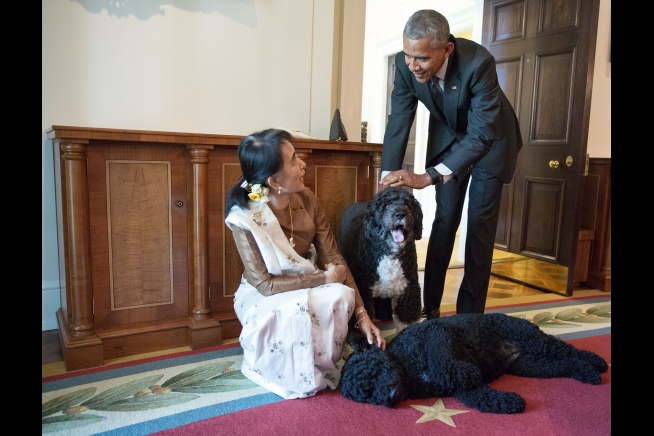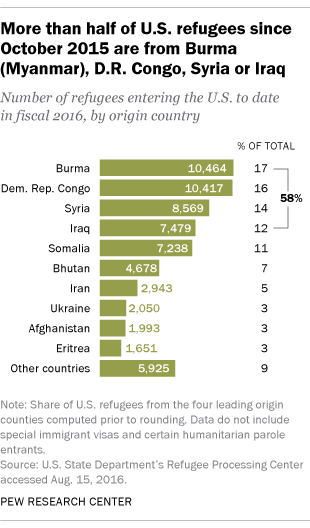
By Ed Diokno
Nearly half of all refugees entering the U.S. are Muslim, according to a Pew report.
With most of the media attention and campaign rhetoric focused on the refugees coming from war-torn Syria, the country that actually sending the greatest number of refugees to the United States is going unnoticed.
The Obama administration has informed Congress it wants to increase the number of refugees accepted to the U.S. next year from 85,000 to 110,000.
But it’s not Syria, or Iraq or the gang violence-ridden country of Guatemala, that is sending the most refugees here at the moment.
It’s Burma.

According to a Pew study, Burma (Myanmar) still tops the list with 10,464 refugees, the Democratic Republic of the Congo, 10,417; Syria, 8,569; and Iraq, 7,479; are the top origin countries of refugees arriving thus far in 2016. Together, refugees from these four nations represent more almost 60 percent of all refugees admitted to the U.S. this fiscal year.
Pew notes that the number of refugees admitted to the United States has typically been contingent on the state of conflict around the world. The Balkan wars of the 1990s helped drive the flow of resettlement in that period; it reached a peak of 142,000 refugees resettled in the U.S. in 1993.
“They’ve been there for generations, and for some all they’ve ever known are the refugee camps,” said Derek Mitchell, who served as U.S. ambassador to Burma from 2012 until earlier this year. “This is an ethnic conflict that is going on 70 years and drives this country.”
The refugee issue was brought up in the talks between President Obama and Nobel Laureate Aung San Suu Kyi Sept. 14 where they also agreed to the lifting of sanctions against the government of Burma. Both leaders stressed that this does not mean letting the Burmese government off the hook for corruption and human rights abuses.
“We are sincere in trying to bring together the different communities,” Suu Kyi told the press, saying that citizenship should be extended to everyone who is entitled to it.
AsAmNews is an all-volunteer effort of dedicated staff and interns. You can show your support by liking our Facebook page at www.facebook.com/asamnews, following us on Twitter, sharing our stories, interning or joining our staff.
